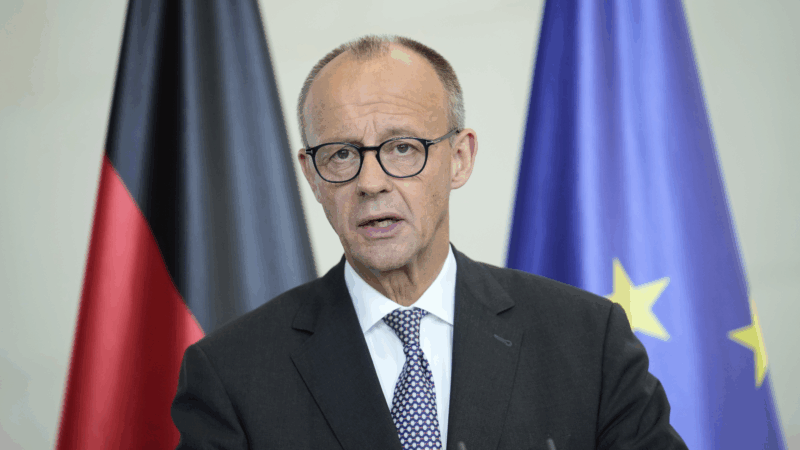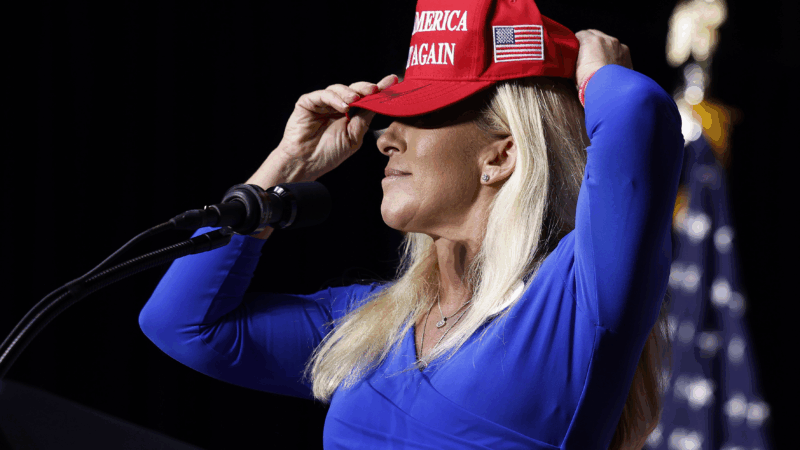Germany halts its military exports that Israel could use in Gaza
BERLIN — Germany will stop exporting military equipment to Israel that could be used in the Gaza Strip, the German government’s leader said, in a swift response to Israel’s decision to expand its operations in the Palestinian territory’s main city.
“The even tougher military action by the Israeli army in the Gaza Strip, which was decided last night by the Israeli Security Cabinet, makes it increasingly difficult for the [German] Federal Government to see how these goals can be achieved,” German Chancellor Friedrich Merz said in a statement Friday. “Under these circumstances, the German government will not authorize any exports of military equipment that could be used in the Gaza Strip until further notice.”
Germany supplied a third of Israel’s arms imports between 2020 and 2024, second only to weapons sales from the United States, according to the Stockholm International Peace Research Institute.
Merz’s announcement follows mounting public pressure in Germany to reevaluate weapons sales, as the United Nations and Palestinian health authorities report growing civilian causalities and limited access to aid in Gaza.
Merz called on Israel’s government to improve the humanitarian situation on the ground in Gaza. “The German government remains deeply concerned about the ongoing suffering of the civilian population in the Gaza Strip,” the statement said. “With the planned offensive, the Israeli government bears even greater responsibility than before for providing aid.”
Germany is one of Israel’s closest allies and staunchest defenders inside Europe, which has usually not taken as strong a line against Israeli policies as some of the other European Union countries. Merz often refers to Germany’s diplomatic support for Israel as its Staatsräson, or “reason of state,” a historic responsibility to the existence of Israel because of Germany’s role in the Holocaust. This vow makes Friday’s quick response to the Israeli decision an even bigger step for Germany.
The suspension leaves open the possibility of continued exports for systems unrelated to Israel’s Gaza offensive, such as missile defense or naval equipment.
But Merz also warned Israel against steps toward “annexation of the West Bank,” in a sign that his government is monitoring developments beyond the Gaza Strip.
Scientists make a pocket-sized AI brain with help from monkey neurons
A new study suggests AI systems could be a lot more efficient. Researchers were able to shrink an AI vision model to 1/1000th of its original size.
U.S. evacuates diplomats, shuts down some embassies as war enters fourth day
The United States evacuated diplomats across the Middle East and shut down some embassies as war with Iran intensified Tuesday while President Trump signaled the conflict could turn into extended war.
North Carolina and Texas have primary elections Tuesday. Here’s what you need to know
The midterm elections are officially underway and contests in Texas and North Carolina will be the first major opportunity for parties to hear from voters about what's important to them in 2026.
College students, professors are making their own AI rules. They don’t always agree
More than three years after ChatGPT debuted, AI has become a part of everyday life — and professors and students are still figuring out how or if they should use it.
Trump promised the MAGA base no new wars. Then he went to war with Iran
President Trump promised his "Make America Great Again" voters an "America First" foreign policy. With the war in Iran, he's testing MAGA world's willingness to be flexible on one of its core beliefs.
Kristi Noem set to face senators over DHS shutdown, immigration enforcement
The focus of the hearing is likely to be on how Kristi Noem is pursuing President Trump's mass deportation efforts in his second term, after two U.S. citizens were killed by immigration officers.








